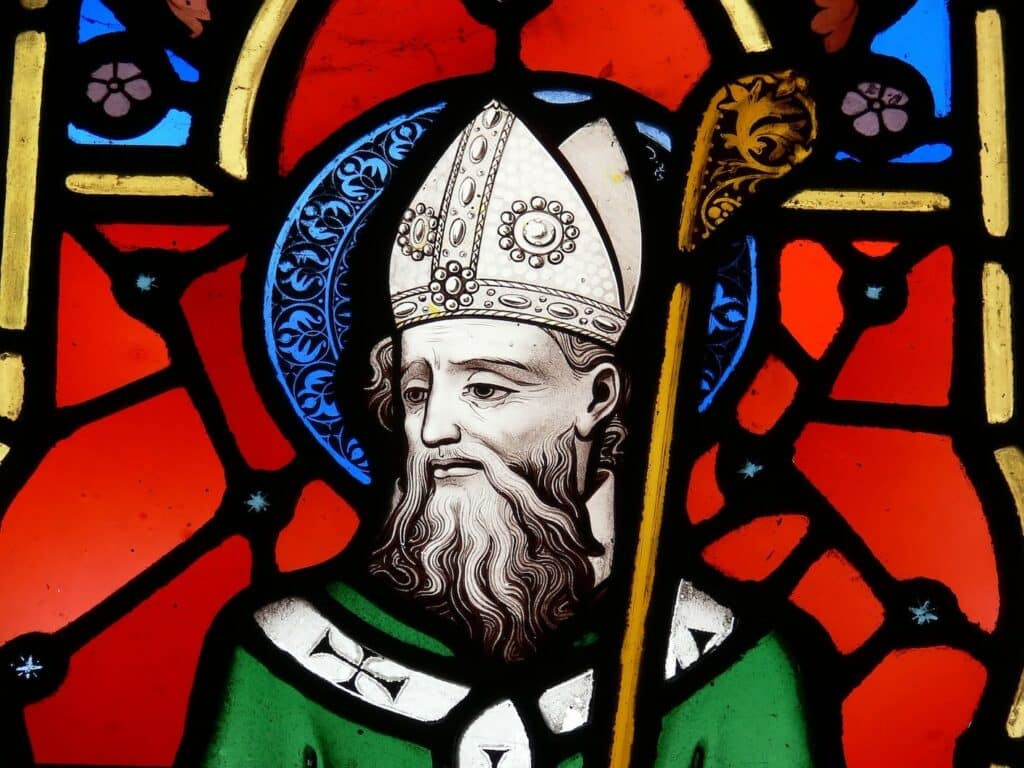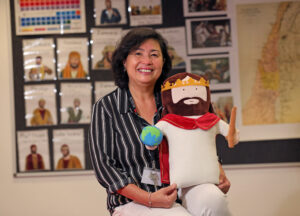Why Do Catholics Celebrate Feast Days?

When thinking about the importance of feasting for Catholics, we often think first of the Mass and how, as the source and summit of our entire Christian lives, the Eucharistic Feast is at the very centre of liturgical life in the Church. Every Sunday, we gather to be nourished by Jesus’ body and blood and worship him in community with other believers. We share in this sacred meal as a way of offering thanksgiving and praise to God.
In the simplest of ways, a Catholic feast day is any day when we remember and celebrate something or someone important to our faith. The word feast comes from the Latin festes, meaning ‘joy’ and symbolises a time of celebration. The Church has a year of feast days in this sense, partnered together with holy days of obligation and saints’ days and days devoted to expressions of God’s love in the lives of Jesus and his mother, Mary.
The most common type of feast day we are hopefully familiar with is for the saints or the holy men and women who have gone before us and are now in heaven with God. There are more than 10,000 officially canonised saints whom the Church celebrates throughout the year.
On a saint’s day, Catholics are often asked to reflect upon the meaning of the observance of the saint’s feast day. Why do we remember them? Why do we keep an annual feast day for each of them? What does that accomplish?
We believe the saints accompany us. The Catechism of the Catholic Church reminds us that in our profession of faith, we say, “I believe… in the communion of saints”. While Pope Francis suggests that “saints are not supermen who are ‘born perfect’, but rather are ordinary people who followed God with all their heart” (Pope Francis, the Feast of All Saints, 2013).
17 March is the celebration of the solemnity of St Patrick. St Patrick of Ireland is one of the world’s most popular saints. He was born in Roman Britain, and when he was fourteen, he was captured by Irish pirates during a raiding party and taken to Ireland as a slave to herd and tend sheep. After escaping and having a vision of God, he studied to become a priest who converted many people, eventually thousands, and he began building churches across the country. He worked many miracles and wrote constantly about his love for God. After years of living in poverty, travelling, and enduring much suffering, he died on 17 March, 461.

This coming Monday 20 March, the Church will celebrate the solemnity of St Joseph. God called St Joseph to a unique mission: to be the spouse of the Blessed Virgin Mary and the earthly father of Jesus. The Church recognises St Joseph by many titles: Terror of Demons, Model of Workers, Pillar of Families, Patron of a Happy Death, and more. His ready faith and humility inspire our own growth in seeking all that is good.
By reminding us of the order, meaning and purpose of our lives, feasting is a way to experience and participate in the joy that God provides. It also gives us an incredible opportunity to extend Jesus’ hospitality and generosity to others and to invite them to experience the joy of Jesus and community as well.
Melissa Trolio, Director of Mission

Inspiring Change: Earth Day 2024
Our Earth Day celebration this week was a powerful reminder of our collective responsibility to protect our planet for future generations.

Unlocking the Power of Connection: Dr Mark Williams Inspires Students
After the success of his first visit last year, we were excited to welcome Dr Mark Williams back to talk with our Years 7, 8 and 9 students this week.

Continuing the Journey: Carol Beins Upholds Her Daughter’s Legacy
This year, Carol Beins follows her daughter Shoshanna’s footsteps, journeying the same path as the former Religious Education teacher.
- Faith, Featured
Author: Santa Maria College
Santa Maria College is a vibrant girls school with a growing local presence and reputation. Our Mission is to educate young Mercy women who act with courage and compassion to enrich our world. Santa Maria College is located in Attadale in Western Australia, 16 km from the Perth CBD. We offer a Catholic education for girls in Years 5 – 12 and have 1300 students, including 152 boarders.







